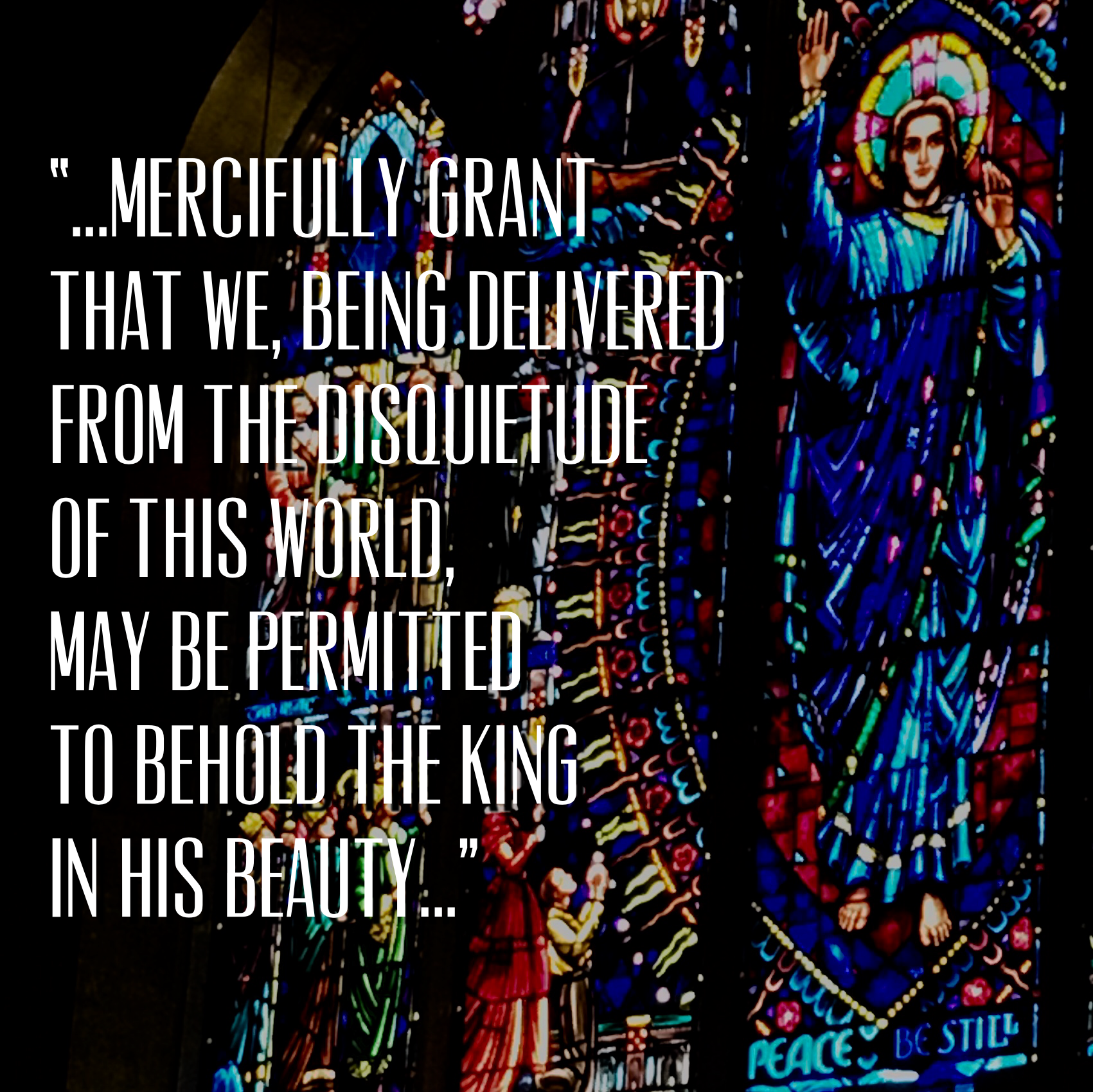The Transfiguration of Christ
Today is the feast day of the Transfiguration of our Lord Jesus Christ. The Collect (from which the words placed over the picture of Mariners’ Altar Window above are quoted), Epistle, and Gospel for this important day can be found on pg. 247-249 in The Book of Common Prayer. As we spend some time today and this week contemplating this great mystery from the life of Christ, these words from a sermon by the Early Church Father, Pope St. Leo the Great, are worth keeping in mind:
The Lord took chosen witnesses, and in their presence revealed his glory. That is to say, the form of body which he had in common with other men, he so transfigured with light, that his face did shine as the sun, and his raiment became exceeding white, even as snow. Now the chief purpose of this Transfiguration was to remove from the hearts of the disciples their fear of the Cross. So, before their eyes, was unveiled the splendour of his hidden majesty, that the lowliness of his freely-chosen suffering might not confound their faith. But nonetheless there was also thus set forth, by the providence of God, a sure and certain hope for holy Church, whereby the whole Body of Christ should know with what great a change it is yet to be honoured. For the members of that Body whose Head hath already been transfigured in light may promise themselves a share in his glory.
Also, that the Apostles might be strengthened, and brought forward into all knowledge, there appeared unto them Moses and Elias (that is, the Law and the Prophets), talking with him. This glorification of Christ took place before five witnesses, as though to fulfil that which is written: At the mouth of two witnesses, or at the mouth of three witnesses, shall the matter be established. What can be more certain, or better attested, than this matter which is proclaimed by the trumpets of both the Old and the New Testament, and concerning which the witness of ancient testimony uniteth with the teaching of the Gospel? The pages of either Covenant strengthen one another, and the brightness of open glory maketh manifest and distinct him whom the former prophecies had promised under the veil of mysteries.
The unveiling of such mysteries roused the mind of the Apostle Peter to an outburst of longing for the things eternal, which despised and disdained things worldly and earthly. Overflowing with gladness at the vision, he yearned to dwell with Jesus there, where the revelation of his glory had rejoiced him. And so he said: Master, it is good for us to be here; if thou wilt, let us make here three tabernacles, one for thee, and one for Moses, and one for Elias. To this proposal the Lord answered nothing, thus signifying that what Peter wished was not wrong, but out of place, since the world could not be saved but by the death of Christ. And the Lord’s example was to call the faith of believers to this, that although we should have no doubts concerning the promise of eternal blessedness, yet we are to understand that, amid the trials of this life, we are to seek for power to endure rather than for glory.
(From The Anglican Breviary, 1361-2.)

